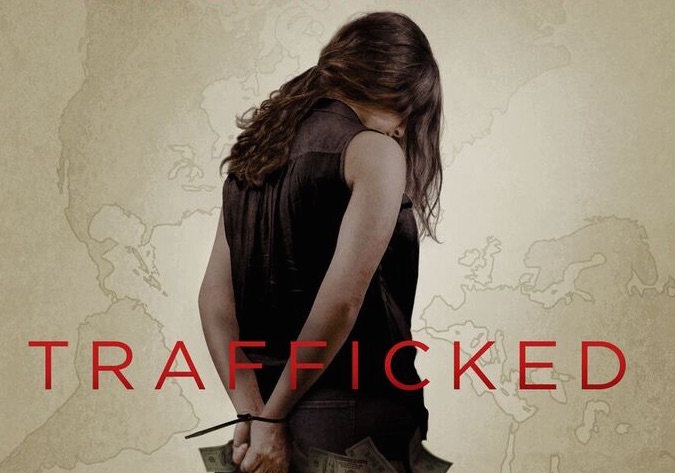
Film screening brings awareness to human trafficking
By Kristy Koehler, November 9 2019—
Hollywood producer Conroy Kanter is inviting University of Calgary students to join the conversation about human trafficking by attending a screening of the film Trafficked in support of Calgary’s RESET Society on Nov. 14.
Sex trafficking is a $150 billion dollar industry. While it may seem unbelievable that such a crime occurs here in Canada, Theresa Jenkins, executive director of RESET Society, says it is far more common than we’d like to think.
“It happens everywhere, in every community to every level of woman, boy and child,” said Jenkins. “It can happen to anyone in your family.”
RESET Society helps people exit human trafficking. They provide housing, a life skills program, education and employment support for survivors. Jenkins first met Kanter when the filmmaker came to Calgary to show Trafficked to focus groups. Kanter later returned to give a private screening and discuss the film with about 20 survivors in one of RESET’s life skills classes.
The 2017 film stars Ashley Judd, Elisabeth Rohm, Sean Patrick Flanery, Madison Wolfe and Patrick Duffy. It premiered at the United Nations headquarters in New York and is based on the award-winning book Sex Trafficking: Inside the Business of Modern Slavery by Siddharth Kara.
“It’s an excellent film,” said Jenkins. “It’s set in a brothel, which we don’t really see a lot of up here in Calgary, but a lot of the situations are very accurate, whether it’s in a brothel or whether its some person having girls that they’re holding and forcing into sex trafficking. It’s a good portrayal of it.”
Before Kanter signed on to make the film, she thought, like many others, that sex trafficking was something happening a world away. A friend, who had given her the script, told her it was happening in the United States and all over the world, in every community.
The main characters in the film are actual individuals that Kara spoke to when writing his book. Kanter was inspired to be a “voice for the voiceless” after talking with Kara about the women.
“When I read the script I thought, ‘I have children. I didn’t know this existed so I need to help educate other people.’ Now its become a calling,” she said. “I’ve been travelling all over the world bringing awareness and staring the conversation — our film is a big eye-opening look at the industry and what happens if you get caught in a sex trafficking ring.”
Kanter has made several films, being on both sides of the camera as a model, actress and now producer, but said Trafficked was a whole new experience for her.
“I’ve made a whole different range of films, learning the craft, learning the business and then when I was brought on to Trafficked that was the first film that I had made with a social impact issue. And now, I’m never going to make another one without that. It’s really transformed the way I make films as a filmmaker and how I look at the messages that we can share with the world.”
Kanter said great care was taken to neither eroticize nor be too graphic with the film’s sensitive content and that there were mental health professionals available to debrief the actresses because the scenes were very difficult to film.
“You have to be real and true to the story. It’s a very fine line,” she said. “We don’t show every detail but you know what’s going to happen in the story and you know what’s going to happen in real life.”
Travelling with the film and hearing stories from survivors has been eye-opening for Kanter, who is currently working on an educational tool kit for schools using clips from the film.
“Until we stop treating women and children as commodities it’ll never end,” she said. “What we’re trying to do is have a prevention campaign to say ‘Look, be aware this could happen.’”
Kanter will be attending three screenings of the film in Calgary from Nov. 13–15. The Nov. 14 screening will be held on campus, in ENG60 at 6:30 p.m. Each screening features a Q&A and discussion with Kanter and members of RESET Society. Tickets are free for students and are available online. All of the proceeds from community members — or students who choose to pay — go toward RESET Society.
Canada has a Human Trafficking Hotline. If you are a survivor of forced prostitution or forced labour, or believe someone else might be, call the hotline at 1-833-900-1010
